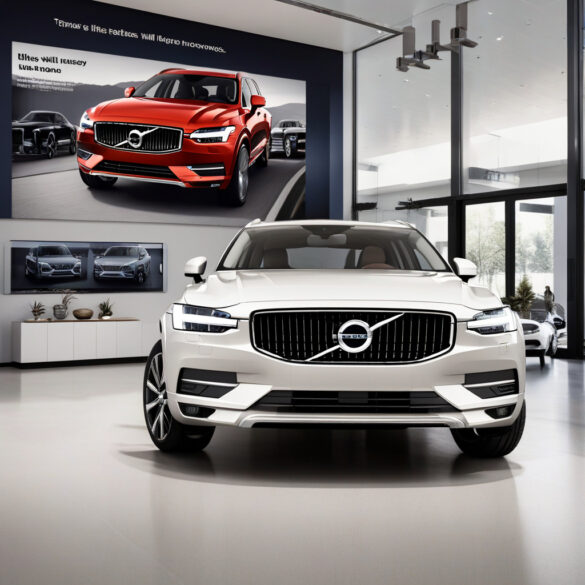Tariffs Will Cause Car Price Hikes Says Volvo
In an increasingly competitive automotive market, the impact of tariffs on car prices has become a pressing concern for manufacturers and consumers alike. Volvo, the renowned Swedish automobile manufacturer, has recently issued a stark warning about the potential increase in car prices resulting from tariffs. This alert not only reflects the company’s strategic positioning but also sheds light on broader economic implications that could affect buyers around the globe.
Volvo’s warning comes at a crucial time when international trade policies are in flux. The company pointed out that tariffs imposed on imported auto parts and materials can significantly inflate production costs. For example, the U.S. tariffs on steel and aluminum have already begun to affect various sectors, including the automotive industry. Since steel is a primary component in vehicle manufacturing, any increase in its cost directly impacts the overall price of a vehicle.
The ripple effects of these tariffs are not limited to large manufacturers like Volvo. Smaller automakers and foreign brands that rely heavily on imported components face the same daunting challenge. This means that consumers can expect to see price hikes not just on Volvo vehicles but across the board. According to industry experts, the average increase in vehicle prices could range from $2,000 to $6,000, depending on the model and the extent of tariff impacts on specific components.
Volvo’s Chief Financial Officer, Hawken Karlsson, emphasized that the company is committed to maintaining its competitive edge while navigating these turbulent economic waters. “We are constantly evaluating our supply chains and exploring local sourcing options,” he stated. This proactive approach illustrates how manufacturers can mitigate some impacts of tariffs. However, the reality is that any adjustments made to avoid tariffs often come with their own set of challenges, including increased logistics costs and potential delays in production.
Moreover, the situation becomes even more complex when considering the global nature of the automotive supply chain. Many parts are sourced from various countries, and tariffs can disrupt established relationships. For instance, a single vehicle may contain components from suppliers in Germany, Japan, and Mexico. When tariffs are applied, the cumulative effect can lead to significant price increases, making it difficult for manufacturers to maintain their pricing strategies.
Volvo is not alone in its concerns; other automakers have echoed similar sentiments. In a recent industry conference, representatives from multiple companies discussed the growing pressure from tariffs and their potential impact on consumer demand. A notable point raised was that higher vehicle prices could lead to a slowdown in sales, ultimately affecting the entire automotive market. As consumers weigh their options, they may opt for used vehicles or delay their purchase altogether, which could further strain new car sales.
In addition to the immediate financial implications, there are long-term considerations to keep in mind. The automotive industry is in a transitional phase, with a shift toward electric and hybrid vehicles. Volvo has made significant investments in developing such vehicles, aiming to become a leader in sustainable transportation. However, if tariffs continue to escalate, the costs associated with these innovations may also rise, potentially hindering progress in the transition to greener technology.
Another aspect of this issue is consumer perception. As car prices increase, buyers are likely to become more discerning about their choices. This scrutiny can lead to a demand for more transparency regarding pricing structures and the true costs associated with tariffs. Consumers may start asking questions about the origin of vehicle parts and how tariffs influence the final price. Consequently, manufacturers will need to engage more actively with their customers to maintain trust and loyalty.
As Volvo prepares for these potential challenges, it is crucial for both industry leaders and policymakers to consider the broader implications of tariffs on the automotive sector. For manufacturers, adapting to changing market conditions is essential for survival. For consumers, understanding the dynamics at play can empower them to make informed decisions when purchasing a vehicle.
In conclusion, Volvo’s warning about potential car price hikes due to tariffs serves as a crucial reminder of the interconnectedness of the global economy and the automotive industry. The effects of tariffs are not confined to manufacturers alone; they resonate throughout the supply chain and ultimately impact consumers. As the industry continues to navigate these challenges, staying informed and proactive will be essential for all stakeholders involved.
automotive, tariffs, Volvo, car prices, trade policies
